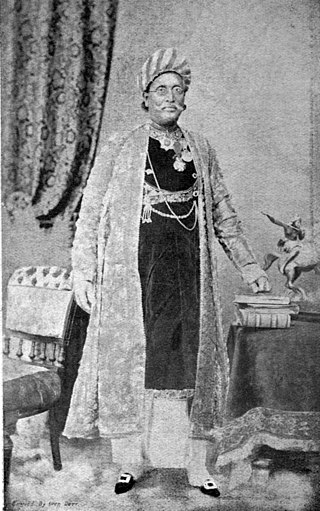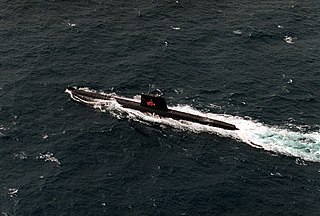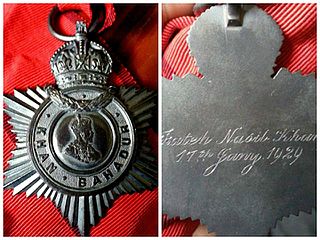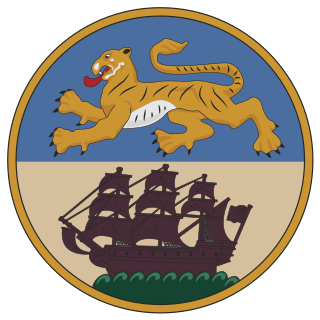| |||||
| Decades: | |||||
|---|---|---|---|---|---|
| See also: | |||||
Events from the year 1965 in Pakistan.
| |||||
| Decades: | |||||
|---|---|---|---|---|---|
| See also: | |||||
Events from the year 1965 in Pakistan.


East Pakistan was the eastern province of Pakistan between 1955 and 1971, covering the territory of the modern country Bangladesh. The province was restructured and renamed from East Bengal, which, in modern times, is split between India and Bangladesh. Its land borders were with India and Burma, with a coastline on the Bay of Bengal. East Pakistanis were popularly known as "Pakistani Bengalis"; to distinguish this region from India's state West Bengal, East Pakistan was known as "Pakistani Bengal". In 1971, East Pakistan became the newly independent state Bangladesh, which means "country of Bengal" or "country of Bengalis" in Bengali language.

Sheikh Mujibur Rahman, popularly known by the honorific prefix Bangabandhu, was a Bangladeshi politician, revolutionary, statesman, activist and diarist. As a politician, Mujib had held continuous positions either as Bangladesh's president or as its prime minister from April 1971 until his assassination in August 1975. Mujib successfully led the Bangladeshi independence movement and restored the Bengali sovereignty after over two centuries following the Battle of Plassey in 1757, for which he is honoured as the 'Father of the Nation' in Bangladesh. In 2011, the fifteenth constitutional amendment in Bangladesh referred to Sheikh Mujib as the Father of the Nation who declared independence; these references were enshrined in the fifth, sixth, and seventh schedules of the constitution. His Bengali nationalist ideology, socio-political theories, and political doctrines are sometimes called Mujibism.

Huseyn Shaheed Suhrawardy was a Pakistani Bengali barrister and politician. In Bangladesh, Suhrawardy is remembered as a pioneer of Bengali civil rights movements, later turned into Bangladesh independence movement, and the mentor of Bangladesh's founding leader Sheikh Mujibur Rahman. He is also remembered for his performance as the Minister for Civil Supply during the Bengal famine of 1943. In India, he is seen as a controversial figure; indirectly responsible for the 1946 Calcutta Killings.

Abul Kasem Fazlul Huq, popularly known as Sher-e-Bangla, was a Bengali lawyer and politician who presented the Lahore Resolution which had the objective of creating an independent Pakistan. He also served as the first and longest Prime Minister of Bengal during the British Raj.

The Rawalpindi conspiracy was an attempted coup to overthrow Liaquat Ali Khan, the first prime minister of Pakistan, in March 1951. It was the first of many subsequent coup attempts against governments in the history of Pakistan. The coup was notably planned by military general Akbar Khan, poet Faiz Ahmad Faiz and writer Sajjad Zaheer along with 12 others.

Nawab Bahadur QaziAbdul Latif was a Bengali Muslim aristocrat, educator and social worker. His title, Nawab was awarded by the British in 1880. He was one of the first Muslims in 19th-century India to embrace the idea of modernisation.
Events from the year 1966 in Pakistan.

Shahbagh is a major neighbourhood and a police precinct or thana in Dhaka, the capital and largest city of Bangladesh. It is also a major public transport hub. It is a junction between two contrasting sections of the city—Old Dhaka and New Dhaka—which lie, respectively, to its south and north. Developed in the 17th century during Mughal rule in Bengal, when Old Dhaka was the provincial capital and a centre of the flourishing muslin industry, it came to neglect and decay in early 19th century. In the mid-19th century, the Shahbagh area was developed as New Dhaka became a provincial centre of the British Raj, ending a century of decline brought on by the passing of Mughal rule.

The Nawab of Dhaka, originally spelt in English Nawab of Dacca, was the title of the head of one of the largest Muslim zamindar in British Bengal and Assam, based in present-day Dhaka, Bangladesh. The title of nawab, similar to the British peerage, was conferred upon the head of the family by Queen Victoria as a recognition of the first Nawab's loyalty and contribution to the social welfare activities.

Ataur Rahman Khan was a Bangladeshi lawyer, politician and writer, and served as Chief Minister of East Pakistan from 1 September 1956 – March 1958, and as the Prime Minister of Bangladesh from 30 March 1984 to 9 July 1986.

Fazlul Quader Chowdhury was a Bengali politician who served as the 5th speaker of the National Assembly of Pakistan from East Pakistan. He belonged to Ayub Khan's Convention Muslim League. He was also the Acting President of Pakistan from time to time when Ayub Khan left the country. His elder brother Fazlul Kabir Chowdhury was the leader of the opposition in East Pakistan assembly. Quader was preceded by Maulvi Tamizuddin Khan of Awami League.
Nawab Major Khwaja Hassan Askari was the sixth and last Nawab of Dhaka. He was born at the Ahsan Manzil Palace in Dhaka. He was the eldest son of Nawab Habibullah Bahadur and Shahryar Begum. He became the Nawab of Dhaka after his father's death in 1958.
Bengalis in Pakistan are ethnic Bengali people who had lived in either West Pakistan or East Pakistan prior to 1971 or live in present-day Pakistan. Most Pakistani Bengalis, are bilingual speaking both Urdu and Bengali and are mainly settled in Karachi. Bengalis that arrived in Pakistan before 1971 have now assimilated with the Urdu-speaking people in Karachi.

Abdul Hamid Khan Bhashani, often shortened as Maulana Bhashani, was a Bengali politician. His political tenure spanned the British colonial India, Pakistan and Bangladesh periods. Maulana Bhashani was popularly known by the honorary title Mozlum Jananeta for his lifelong stance advocating for the poor. He gained nationwide mass popularity among the peasants and helped to build the East Pakistan Peasant Association. Owing to his political leaning to the left, often dubbed Islamic Socialism, he was also called 'The Red Maulana'. He is considered as one of the main pillars of Bangladeshi independence of 1971.

Ghazi Shaheed is a 1998 thriller drama film based on the disasters that befell the PNS Ghazi on Bay of Bengal. It was directed by Kazim Pasha and stars Shabbir Jan as Commander Zafar Khan and Adnan Jilani as Lieutenant-Commander Pervez Hameed. The film was financed and produced by the ISPR and the Navy and was filmed mostly in the Arabian Sea.

Khan Bahadur – a compound of Khan "Leader" and Bahadur "Brave" – was a honorary title in British India conferred on Indian subjects who were adherents of Islam or Zoroastrianism. The equivalent title for Hindus, Buddhists and Indian Christians was Rao Bahadur/Rai Bahadur and Sardar Bahadur for Sikhs. The title of Khan Bahadur was one degree higher than the title of Khan Sahib.

The Bengal Legislative Assembly was the largest legislature in British India, serving as the lower chamber of the legislature of Bengal. It was established under the Government of India Act 1935. The assembly played an important role in the final decade of undivided Bengal. The Leader of the House was the Prime Minister of Bengal. The assembly's lifespan covered the anti-feudal movement of the Krishak Praja Party, the period of World War II, the Lahore Resolution, the Quit India movement, suggestions for a United Bengal and the partition of Bengal and partition of British India.

The Bengal Provincial Muslim League (BPML) was the branch of the All India Muslim League in the British Indian province of Bengal. It was established in Dhaka on 2 March 1912. Its official language was Bengali. The party played an important role in the Bengal Legislative Council and in the Bengal Legislative Assembly, where two of the Prime Ministers of Bengal were from the party. It was vital to the creation of the Dominion of Pakistan, particularly after its election victory in 1946.

Athar Ali was a Bangladeshi Islamic activist, author, teacher and politician. He participated in the Indian independence movement, and was former president of the Nizam-e-Islam Party. Ali was also a khalifah of Ashraf Ali Thanvi, one of the founders of the Deobandi movement.